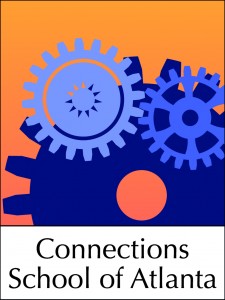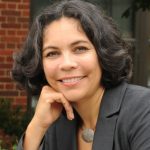Connections School of Atlanta fills education gap
 Alison Auerbach from Connections School of Atlanta will be in attendance at both of our sensory friendly performances of INSIDE I, April 28 at 8 PM, and May 7 at 2 PM. Below she talks about Connections School, why it is necessary, and how we can all work on being more inclusive:
Alison Auerbach from Connections School of Atlanta will be in attendance at both of our sensory friendly performances of INSIDE I, April 28 at 8 PM, and May 7 at 2 PM. Below she talks about Connections School, why it is necessary, and how we can all work on being more inclusive:
Q. How did Connections School of Atlanta, a secondary school choice for children with autism and similar neuro-developmental challenges, get started?
A. CSA was started by a group of parents of current and former students at The Hirsch Academy, a DIR/Floortime-based K-8 school in Decatur. Our children thrive thanks to Hirsch’s unique combination of therapeutic support and academic challenge, and we want that experience to continue into their high school years.
When we first came together to discuss what we want for our children’s education, we articulated a set of core values and goals to which we were all committed. Since we had yet to find these values and goals reflected to our satisfaction in the existing options for our children, our choice was clear: Encourage our children to change themselves to fit the available programs, or create a place that embraces our children just as they are.
Core Goals:
We want our students to embrace their strengths and learn to overcome their challenges while maintaining a sense of pride in who they are.
We want our students to understand “different” doesn’t mean “less,” but does require knowing how to ask for what you need.
We want to see our students able to both adapt to the world around them and demand the world meet them halfway.
Core Values:
We believe different is not less: We are not here to fix or cure our students, because we do not believe they are broken.
We presume competence in all of our students: We assume our students have the desire and capability to learn and to engage with the world.
We promote self-respect and self-advocacy: We teach our students to identify their specific needs, and to believe they deserve to have those needs met.
We honor each student’s individual learning style(s) and sensory profile: We strive to tailor the educational experience to best fit the way each student absorbs, processes and expresses information.
Q. We scoped out the website and it’s very apparent how experienced and dedicated the staff is to Connections’ cause. What sort of impact do these professionals have on the students and their time at Connections?
A. Our founding board is beyond grateful we are able to begin Connections’ first year with such a highly qualified, experienced and dedicated staff. They are truly our “dream team,” and have demonstrated an extraordinary commitment to bringing our vision to life.
Our students will spend every school day with teachers who believe they are extraordinary, intelligent and gifted individuals with the power to change the world. They will learn from teachers who measure success in terms of individual progress, rather than external, generic standards. They will be guided in their explorations by teachers who understand every student learns best at his or her own pace, and know education is not a race.
This type of teaching naturally reflects our core goals and values, and helps instill them in our students. It shows our students difference is beautiful and valuable, and acceptance should be the norm for which we all strive. Ultimately, teachers like ours help our students develop the confidence to walk with their heads held high through a world often harshly critical of difference.
Q. Inside I wants to create a space where audiences can understand the perspective of someone on the autism spectrum. Other than setting up plays and partnerships, what do you think the Atlanta community can do to enhance autism awareness?
A. While April is popularly known as Autism Awareness Month, Connections chooses to support the autistic self-advocates who refer to it as Autism Acceptance Month. This difference is more than semantic: “Awareness” suggests it is enough to be aware of autism’s existence and what it looks like. “Acceptance” demands we listen to autistic people’s voices and accept their perspectives as valid.
(Incidentally, many autistic advocates deliberately choose not to use “person first” language such as “people with autism.” I once heard an autistic advocate explain it more or less like this: In conversation, we refer to French people or English people or Vietnamese people. Autism is my country, my identity. It should come first. Your best bet is to ask autistic individuals which terminology they prefer.)
With this key distinction in mind, perhaps the most helpful thing neurotypical Atlantans can do to enhance autism acceptance and to create safe spaces for autistics is to include a wide range of autistic people in the conversation. Ask them what will make them feel more welcome in Atlanta communities, and listen to their answers.
Q. How can the Atlanta community help in creating safe spaces for people who have autism or similar developmental challenges?
A. Be aware some autistic people might communicate in unfamiliar ways, or even very differently from one another. As the saying goes, “If you’ve met one autistic person, you’ve met one autistic person.”
Be prepared to provide some autistic people with more processing time during conversations. A long pause after your questions does not necessarily mean that the autistic person doesn’t know the answer or has nothing to say. That person might know the answer before you even finish the question, and need extra time to get the words from brain to mouth.
Recognize nonverbal autistic people are not deaf or stupid: Presume competence regardless of verbal ability. Imagine how frustrating it would be to have your body refuse to cooperate when you want to speak, or to be taught the same material over and over again for years because you can’t express understanding in the ways others expect. Assume they hear and understand everything you say.
Recognize the brain-body disconnect. Some autistic people find it challenging to get their bodies to do what they want them to do and their mouths to say what they want them to say. Be aware that what you see (or hear) could be just a tiny sliver of that person’s story.
Put the “Rainman” stereotype to rest for good. Move beyond mainstream movie and television portrayals of autism, and learn from real-life autistic people. Yes, Temple Grandin is wonderful, but there’s a world of other lesser-known and just as wonderful autistic advocates out there, including Ido Kedar (idoinautismland.com) and Emma Zurcher-Long (emmashopebook.com).
At this time, few high school programs specifically for autistic adolescents exist within the Atlanta perimeter. Fewer still presume competence in and believe in the unlimited potential of their autistic students. And even fewer open their doors to nonverbal students. For some of our students, Connections is the only thing standing between them and four years of sitting in a corner watching cartoons, unable to communicate their desire to learn and grow.
Our students require individualized attention and a very low student-teacher ratio, which necessitates a very high tuition that still does not cover all of our expenses. Please consider supporting autism acceptance with a small (or large) donation to help our extraordinary students meet their needs.
All of us at Connections thank 7 Stages, Michael Haverty, Erwin Maas and Sam Gross for their commitment to making autistic voices heard.





